
Ajman: The Hidden Gem of the United Arab Emirates
Nestled along the Arabian Gulf, Ajman offers a quieter and more relaxed atmosphere compared to its bustling neighbors, Dubai and Abu Dhabi. This charming emirate is known for its pristine beaches, where visitors can lounge on soft sands and swim in clear blue waters. The coastline is dotted with luxury resorts and local eateries, making it a perfect spot for both relaxation and exploration. Ajman is rich in history and culture, with several landmarks that provide a glimpse into its past. The Ajman Museum, housed in an 18th-century fort, showcases artifacts and exhibits that tell the story of the emirate's heritage. The Dhow Yard, one of the largest boat-building yards in the world, offers a fascinating look at the traditional craftsmanship that has been passed down through generations. For those seeking adventure, the Al Zorah Nature Reserve is a must-visit. This protected area is home to a variety of bird species, mangroves, and marine life. Kayaking through the serene waters of the reserve is an unforgettable experience. Additionally, the city's vibrant souks and modern shopping malls provide ample opportunities for retail therapy, with a mix of traditional crafts and international brands.
Local tips in Ajman
- Visit Ajman Museum early in the morning to avoid crowds and enjoy a peaceful experience.
- Explore the Al Zorah Nature Reserve by kayak for the best chance to see diverse wildlife.
- Don't miss the traditional souks for unique souvenirs and local handicrafts.
- Stay at a beachfront resort to make the most of Ajman's beautiful coastline.
- Try local seafood at beachfront restaurants for a taste of Ajman's culinary delights.
Ajman: The Hidden Gem of the United Arab Emirates
Nestled along the Arabian Gulf, Ajman offers a quieter and more relaxed atmosphere compared to its bustling neighbors, Dubai and Abu Dhabi. This charming emirate is known for its pristine beaches, where visitors can lounge on soft sands and swim in clear blue waters. The coastline is dotted with luxury resorts and local eateries, making it a perfect spot for both relaxation and exploration. Ajman is rich in history and culture, with several landmarks that provide a glimpse into its past. The Ajman Museum, housed in an 18th-century fort, showcases artifacts and exhibits that tell the story of the emirate's heritage. The Dhow Yard, one of the largest boat-building yards in the world, offers a fascinating look at the traditional craftsmanship that has been passed down through generations. For those seeking adventure, the Al Zorah Nature Reserve is a must-visit. This protected area is home to a variety of bird species, mangroves, and marine life. Kayaking through the serene waters of the reserve is an unforgettable experience. Additionally, the city's vibrant souks and modern shopping malls provide ample opportunities for retail therapy, with a mix of traditional crafts and international brands.
When is the best time to go to Ajman?
Iconic landmarks you can’t miss
City Centre Ajman
Discover a vibrant shopping destination at City Centre Ajman with diverse retail, dining, and entertainment options for the whole family.
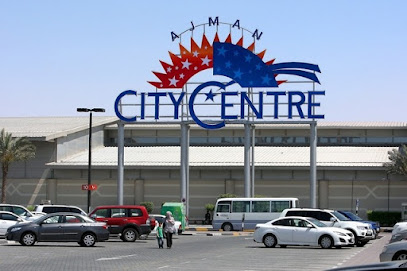
Ajman Beach
Experience the serene beauty of Ajman Beach, a tranquil retreat along the Arabian Gulf, perfect for relaxation and beach activities.
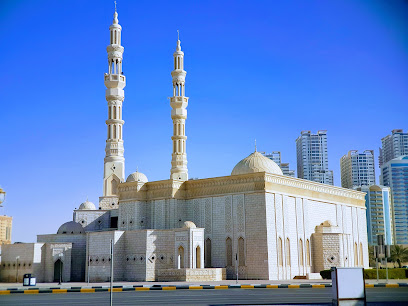
Ajman Marina
Discover the charm of Ajman Marina, a picturesque destination along the Arabian Gulf, offering stunning views, dining, and adventure for all travelers.
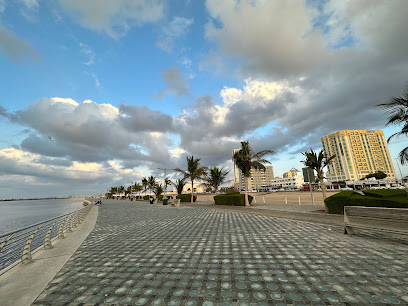
UAE Pygmy Zoo
Discover the enchanting UAE Pygmy Zoo in Ajman, a delightful animal park with interactive exhibits and family-friendly activities for all ages.
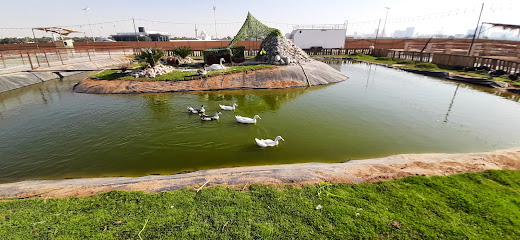
Hamidiya Park
Explore Hamidiya Park, Ajman's tranquil green oasis, perfect for relaxation, family activities, and enjoying nature's beauty in the heart of the city.
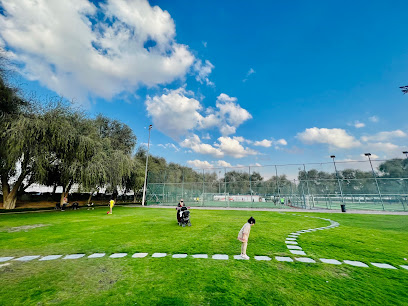
Al Safia Park
Experience tranquility at Al Safia Park, Ajman's green haven for relaxation, recreation, and family gatherings amidst stunning landscapes.
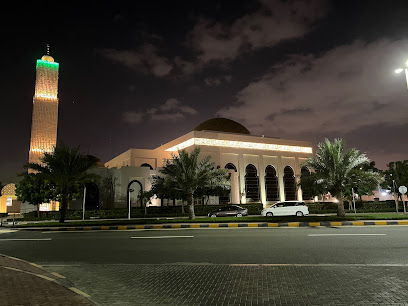
Marsa Ajman
Explore the scenic beauty and vibrant culture of Marsa Ajman, a top tourist attraction in the heart of Ajman, UAE.
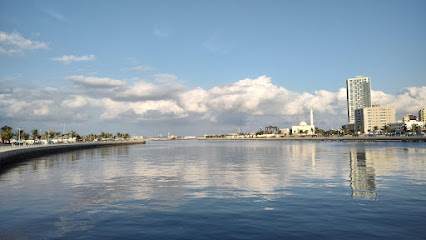
Ajman Museum
Discover the rich history and culture of the UAE at Ajman Museum, housed in a historic fort offering fascinating exhibits and engaging experiences.
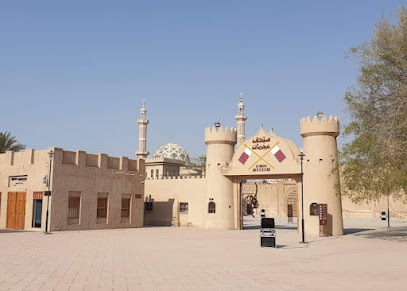
Al Zorah Marina 1
Explore the serene landscapes of Al Zorah Marina 1, a tranquil park in Ajman perfect for relaxation, scenic views, and family fun.
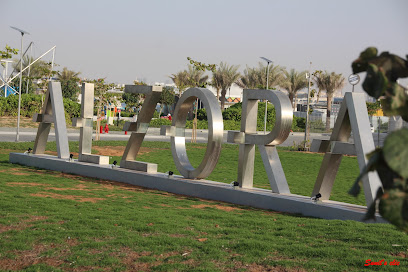
Flag Park - UAE Flag Pole Ajman
Experience the tranquil beauty of Flag Park, home to the towering UAE Flag Pole, a serene escape in Ajman for families and nature lovers.
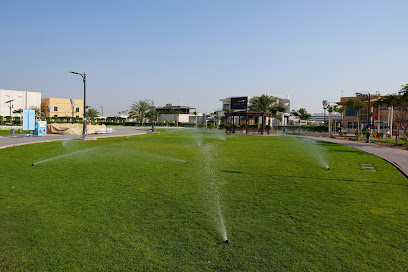
Sports Park
Explore the lush landscapes and vibrant atmosphere of Sports Park in Ajman, a perfect destination for relaxation and recreation in the heart of the UAE.
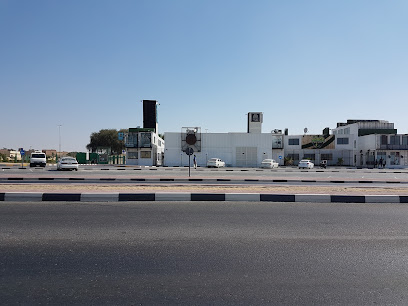
Al Jurf Family Park
Explore the serene beauty of Al Jurf Family Park in Ajman, a family-friendly oasis offering lush landscapes and endless recreational activities.
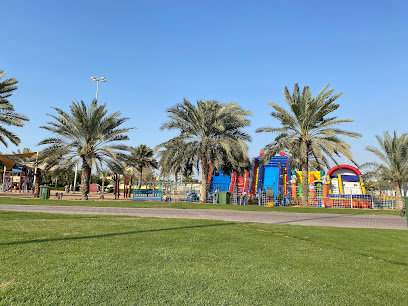
Ajman University - Sheikh Zayed Center For Conferences & Exhibition
Discover the Sheikh Zayed Center for Conferences & Exhibition, where education meets culture in the heart of Ajman, UAE.
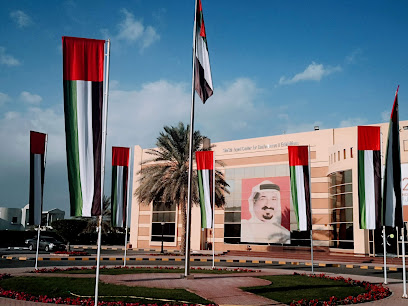
Al Zorah Natural Reserve - Ajman
Explore the enchanting Al Zorah Natural Reserve in Ajman, a stunning sanctuary of wetlands and wildlife perfect for nature lovers and adventure seekers.
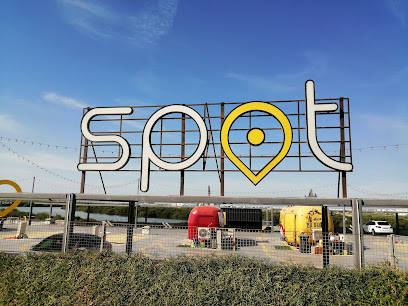
Ajman Heritage District
Explore the Ajman Heritage District for a deep dive into the rich history and culture of the UAE, where traditional architecture meets vibrant local markets.
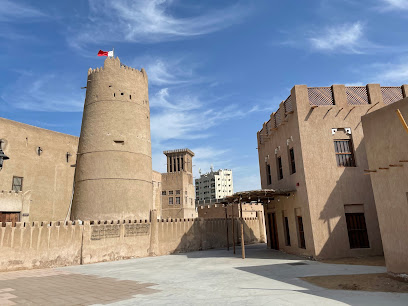
Unmissable attractions to see
Burj Khalifa
Experience breathtaking views and unparalleled luxury at Burj Khalifa, a must-visit landmark in the heart of Dubai's skyline.
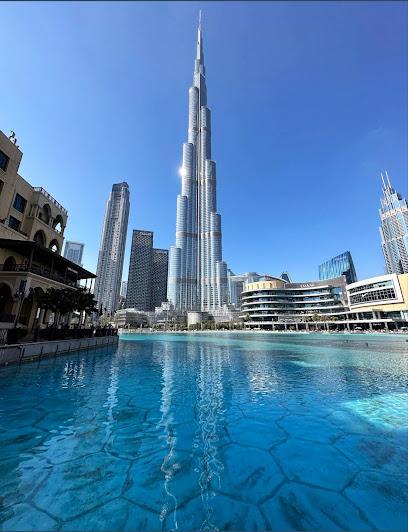
Global Village
Experience the vibrant cultures of the world at Global Village, Dubai's premier entertainment and shopping destination featuring thrilling attractions and culinary delights.
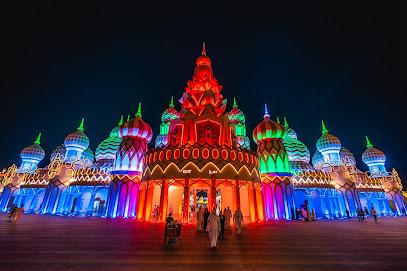
The Dubai Fountain
Discover the enchanting Dubai Fountain in Downtown Dubai, a breathtaking water show set against the stunning backdrop of the Burj Khalifa.
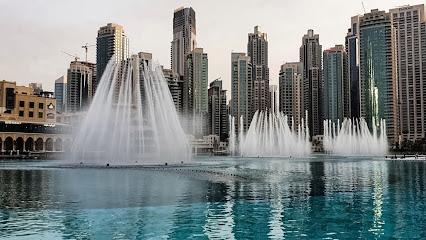
Dubai Miracle Garden
Experience the breathtaking beauty of Dubai Miracle Garden, a floral wonderland featuring over 150 million blossoms in stunning displays.
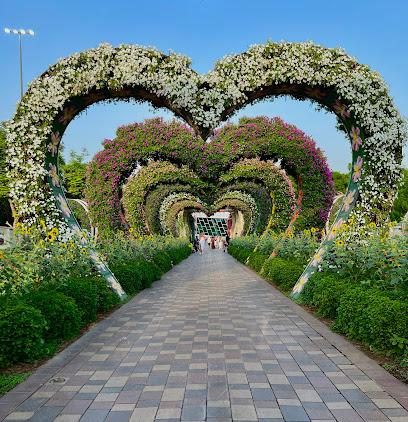
Dubai Aquarium & Underwater Zoo
Explore the vibrant underwater world at Dubai Aquarium & Underwater Zoo in Downtown Dubai, where marine life and adventure come together.
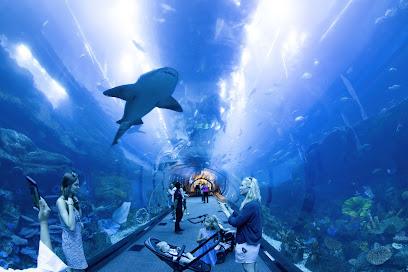
Dubai Frame
Experience the breathtaking views and rich history of Dubai at the iconic Dubai Frame, where tradition meets innovation.
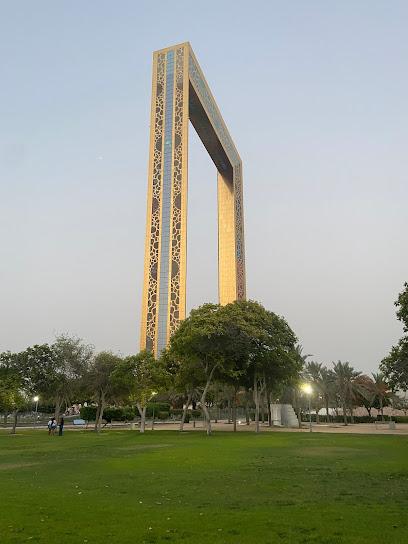
Burj Park
Discover Burj Park, a serene urban oasis in the heart of Dubai, offering stunning views of the Burj Khalifa and vibrant city life.
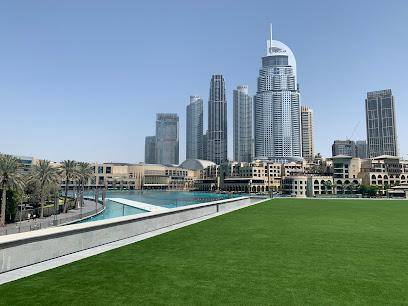
Zabeel Park
Experience the tranquility and beauty of Zabeel Park, an expansive urban oasis in the heart of Dubai, offering recreation and relaxation for all visitors.
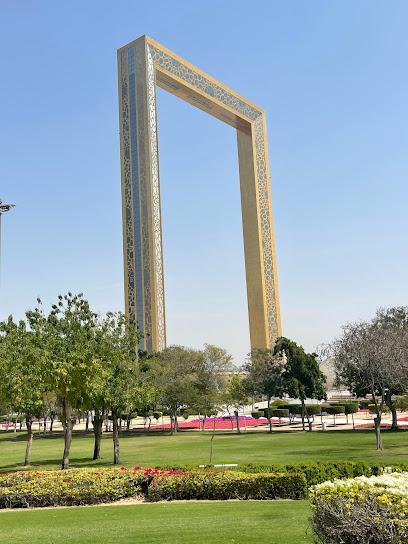
Dubai World Trade Centre
Experience the pulse of Dubai's commerce and culture at the iconic Dubai World Trade Centre, a must-visit for every traveler.
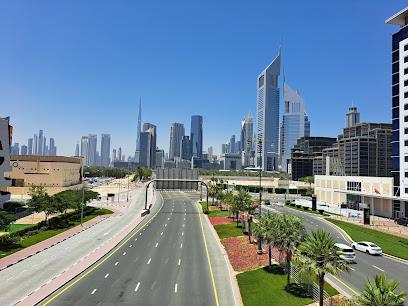
Ski Dubai
Discover the magic of skiing in the desert at Ski Dubai, an indoor ski resort offering thrilling slopes, snow play, and unique experiences for all ages.
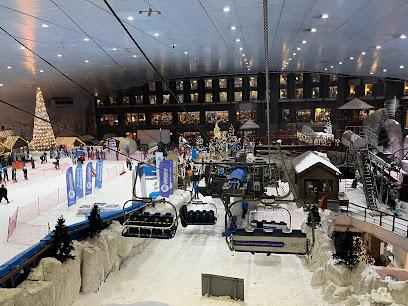
Museum of The Future
Experience the future today at Dubai's Museum of The Future, where innovation meets imagination in a stunning architectural masterpiece.
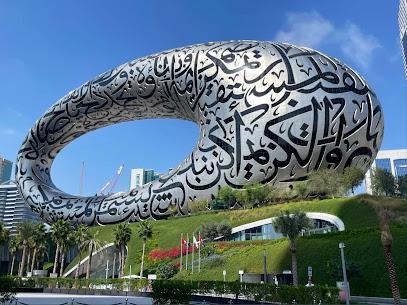
Dubai Mall Waterfalls
Experience the mesmerizing Dubai Mall Waterfalls, a stunning blend of art and nature in the heart of Downtown Dubai.
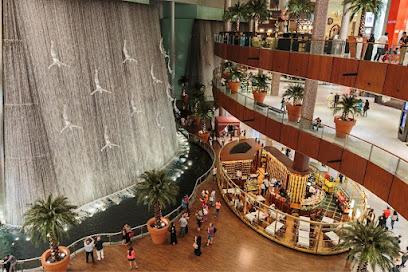
Aquaventure Waterpark
Dive into a world of excitement at Aquaventure Waterpark, where thrilling water rides and unforgettable marine encounters await in Dubai.
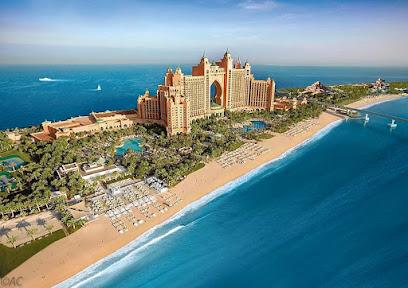
Burj Al Arab
Explore the luxurious Burj Al Arab, Dubai's iconic 7-star hotel, known for its stunning architecture and unparalleled hospitality.
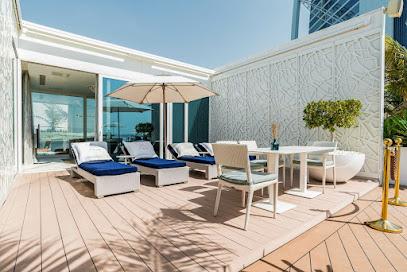
Al Mamzar Beach Park
Experience the tranquil beauty of Al Mamzar Beach Park, where pristine beaches meet lush gardens in the heart of Dubai's urban landscape.
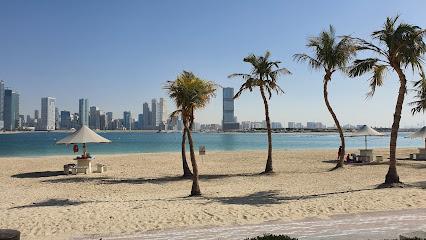
Essential places to dine
Sultan Saray
Experience the authentic taste of Turkey at Sultan Saray in Ajman—where every meal is a celebration of flavor and tradition.
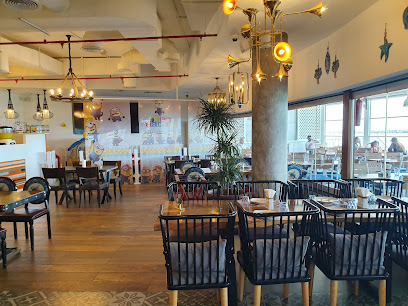
Themar Al Bahar Restaurant
Experience exquisite seafood dining at Themar Al Bahar Restaurant on Ajman's scenic Corniche – where flavors meet stunning views.
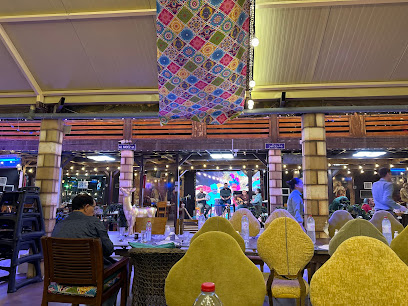
Bab AlHara Restaurant
Discover authentic Syrian cuisine at Bab AlHara Restaurant in Ajman One Towers, where every dish tells a story.
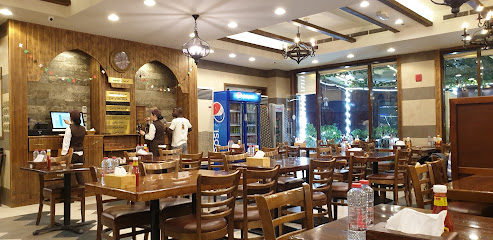
Souryana Restaurant and Cafe
Discover authentic Middle Eastern cuisine at Souryana Restaurant and Cafe in Ajman – where every meal is a celebration of flavors.
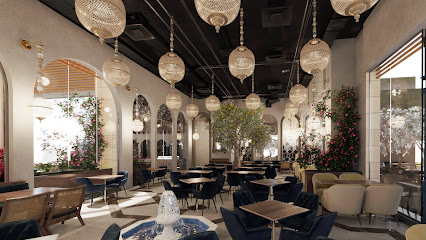
Curry Chatti Restaurant Ajman
Savor the rich flavors of India at Curry Chatti Restaurant in Ajman – a top destination for biryani lovers and culinary adventurers.
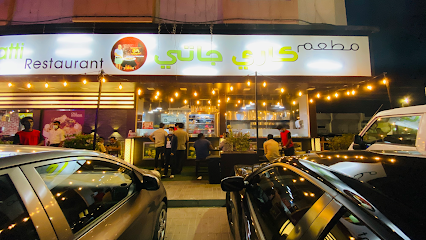
Danial Restaurant Ajman
Experience the rich flavors of Persian cuisine at Danial Restaurant Ajman - where every meal is a delightful culinary adventure.
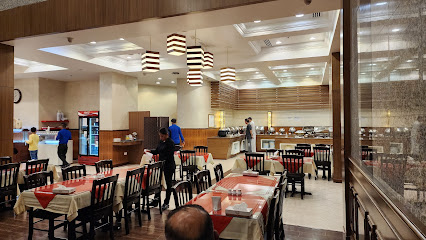
Impero restaurant
Discover the essence of authentic dining at Impero Restaurant in Ajman - where tradition meets modern culinary artistry.
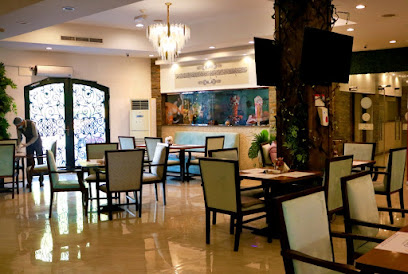
Al Multan Restaurant & Kitchen
Experience the rich flavors of Pakistani cuisine at Al Multan Restaurant & Kitchen in Ajman – where every dish tells a story.
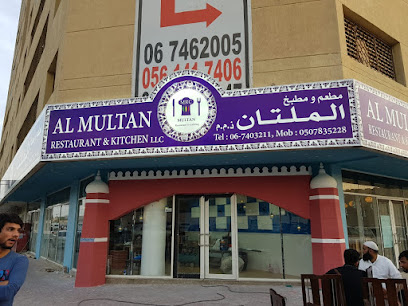
Seascape Restaurant Ajman
Experience exquisite seafood dishes at Seascape Restaurant in Ajman, where fresh ingredients meet stunning views for an unforgettable dining adventure.
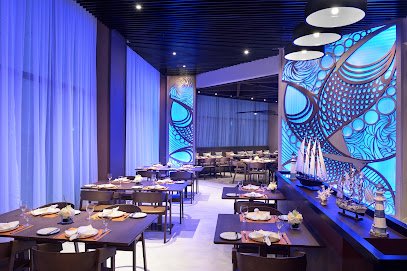
مطعم قطار بيكانت بيك Piquant Pick train restaurant Restaurant
Discover the unique charm of Piquant Pick Train Restaurant in Ajman - where modern Indian cuisine meets innovative dining on wheels.
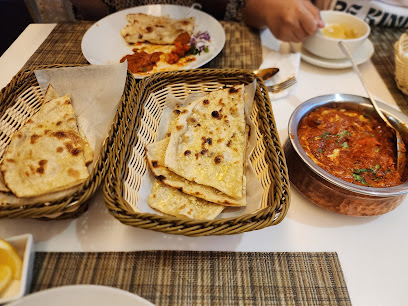
Viking Restaurant
Experience the unique flavors of Nordic cuisine at Viking Restaurant in Ajman, where exceptional food meets warm hospitality.
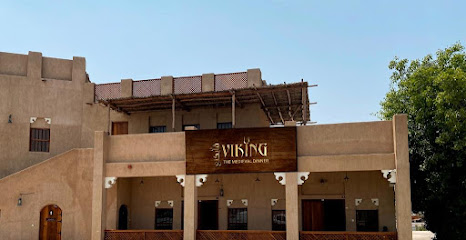
HOT N COOL - Jurf, Ajman
Discover flavorful dishes at HOT N COOL in Ajman - a must-visit restaurant offering a blend of local and international cuisines.
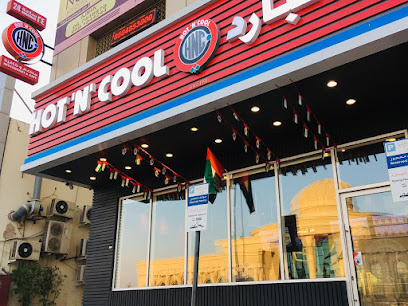
food box
Experience the best of Japanese and Italian cuisine at Food Box in Ajman - where every dish tells a story.

My Flower Restaurant
Experience authentic Indian flavors at My Flower Restaurant in Ajman - where culinary traditions meet modern comfort.
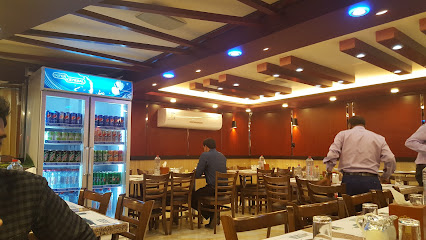
Dastar Khan Restaurant and cafe L.LC
Experience authentic Asian and Pakistani cuisine at Dastar Khan Restaurant and Cafe in Ajman – where flavor meets affordability.
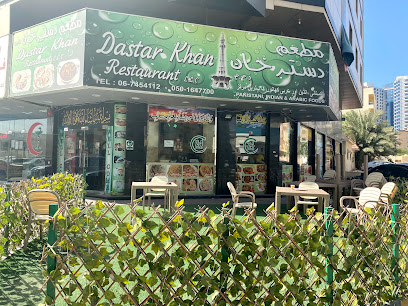
Markets, malls and hidden boutiques
City Centre Ajman
Discover a diverse shopping, dining, and entertainment experience at City Centre Ajman, where every visitor finds something special.
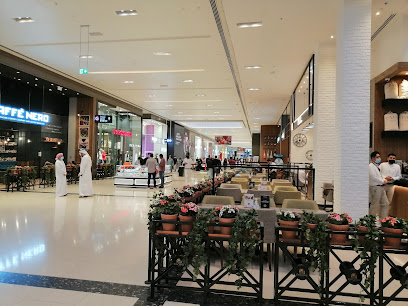
Ajman China Mall
Explore the vibrant Ajman China Mall, where shopping meets culture in a unique fusion of Asian and modern retail experiences.
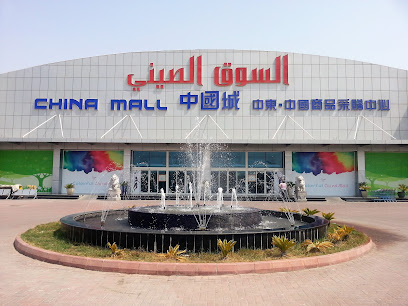
Salem shopping center
Explore Ajman's Salem Shopping Center for a delightful blend of shopping, fresh produce, and local flavors in a vibrant atmosphere.
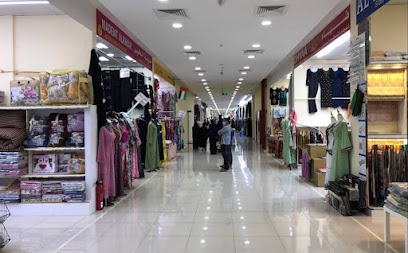
Gift Way
Discover unique home goods and local treasures at Gift Way in Ajman, a vibrant shopping destination for all your needs.
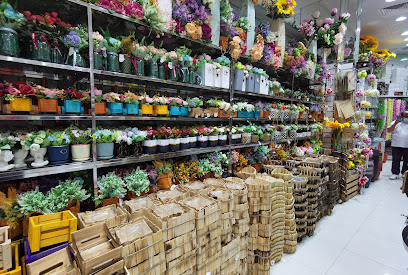
AJMAN NEW PUBLIC MARKET
Discover the vibrant Ajman New Public Market, where shopping, dining, and Middle Eastern culture come together for an unforgettable experience.
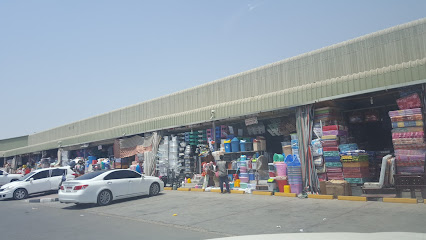
الفن الاماراتي
Discover unique gifts and traditional Emirati art at الفن الاماراتي, your ultimate shopping destination in Ajman.
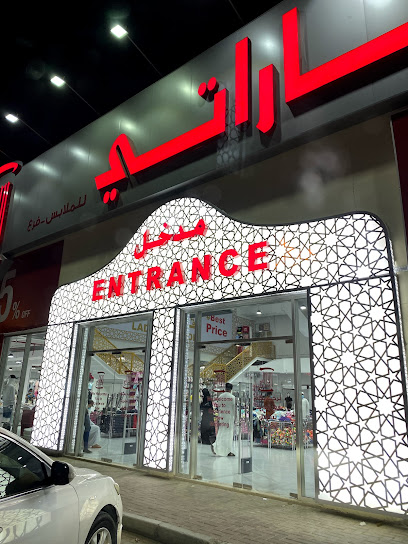
Sun & Sand Sports Factory Outlet
Explore an extensive collection of sporting goods at Sun & Sand Sports Factory Outlet in Ajman, where quality meets affordability for every athlete.
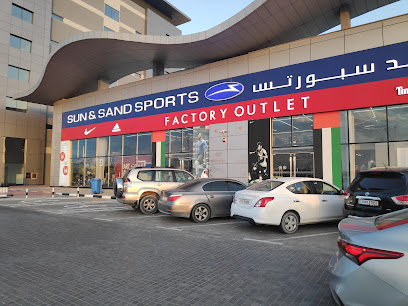
Factory Mall
Explore Factory Mall in Ajman - a vibrant shopping destination with diverse retail outlets, delightful dining, and exciting entertainment options.
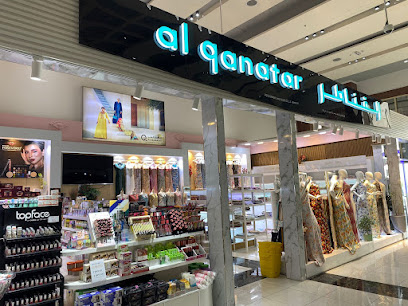
Al Fan Emirates Ajman الفن الاماراتي عجمان
Discover the best in fashion and retail at Al Fan Emirates Ajman, where shopping meets tradition in a vibrant atmosphere.
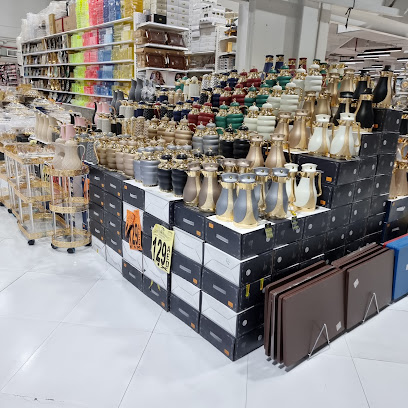
Gift Mart general trading
Explore unbeatable prices and a diverse selection of products at Gift Mart in Ajman, the ultimate destination for savvy shoppers.
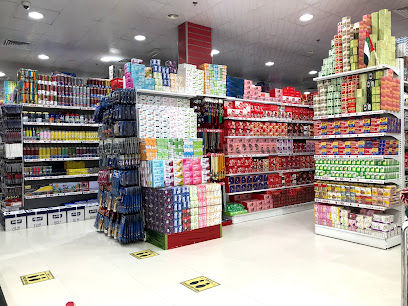
Gift mart muwaihat جفت مارت المويهات
Experience the vibrant shopping culture at Gift Mart Muwaihat, your one-stop destination for unique finds and local treasures in Ajman.
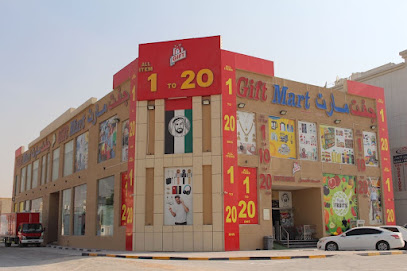
Brands For Less
Explore endless bargains and unique treasures at Brands For Less in Ajman—your ultimate discount shopping destination.
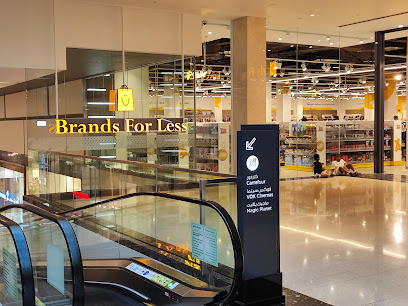
Nashaya FZ LLC
Explore the stylish offerings of Nashaya FZ LLC, a premier women's clothing store in Ajman's vibrant Free Zone, perfect for fashion enthusiasts.
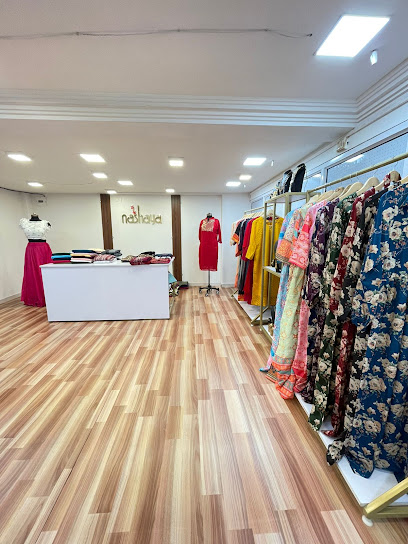
WOW General Trading LLC
Explore the diverse offerings of WOW General Trading LLC, your go-to gift shop in Ajman for unique souvenirs and local handicrafts.
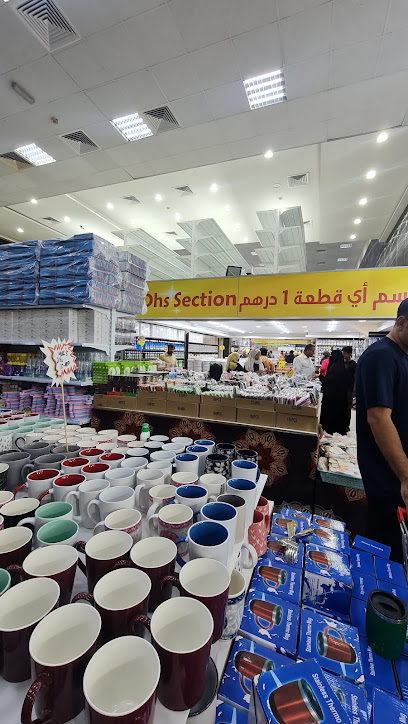
Everyday Mall / افري دي مول
Discover the vibrant shopping experience at Everyday Mall in Ajman, featuring a diverse range of stores and a bustling produce market.
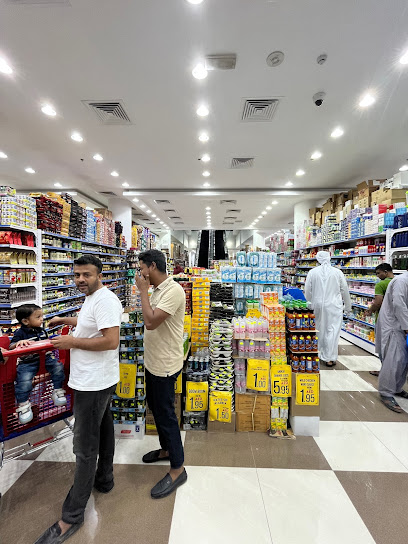
Essential bars & hidden hideouts
Zanzibar - Beach Bar - Ajman Hotel
Discover Zanzibar - Beach Bar at Ajman Hotel, where exquisite grilling meets stunning beach views for an unforgettable dining experience.
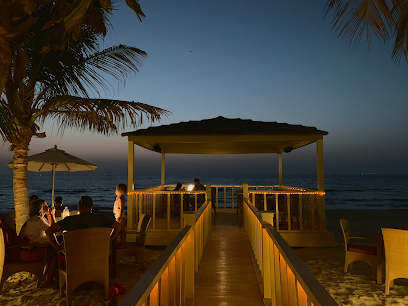
McGettigan’s Ajman
Discover the vibrant atmosphere of McGettigan’s Ajman, where Irish charm meets local culture in a lively sports bar setting.
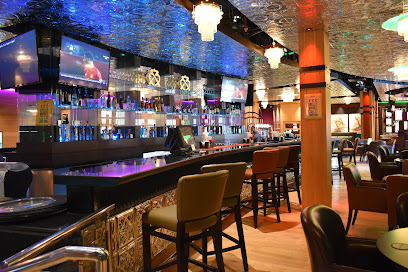
FLIRT LOUNGE AND CLUB
Experience Ajman's vibrant nightlife at FLIRT LOUNGE AND CLUB, where lively music and crafted cocktails create an unforgettable party atmosphere.
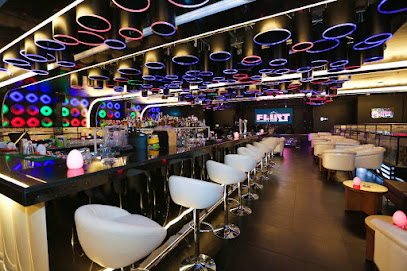
Thirsty Horse Sports Bar
Join the excitement at Thirsty Horse Sports Bar in Ajman, where sports, great food, and vibrant nightlife merge for an unforgettable experience.
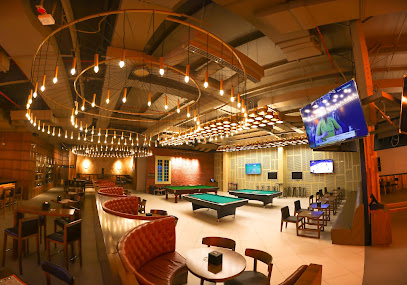
Baywatch Night Club Ajman
Dive into the energetic nightlife at Baywatch Night Club Ajman, where vibrant music meets an inviting atmosphere for an unforgettable experience.
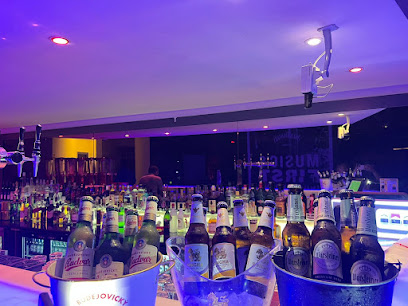
Nojoom Lounge
Experience luxury and relaxation at Nojoom Lounge in Ajman, where every sip and bite is a step into indulgence and comfort.
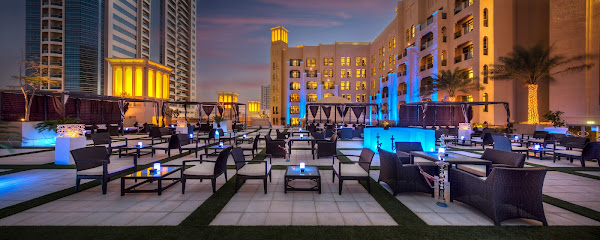
The Sports Bar
Experience the thrill of live sports at The Sports Bar in Ajman, where great food, drinks, and camaraderie come together for an unforgettable night.
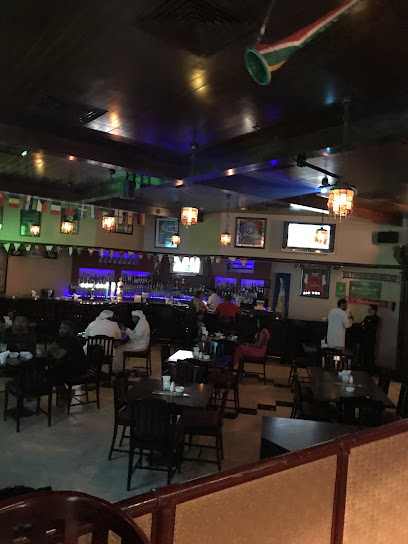
Pool Bar - Ajman Hotel
Discover the tranquil ambiance of the Pool Bar at Ajman Hotel, where refreshing drinks meet stunning poolside views in the heart of Ajman.
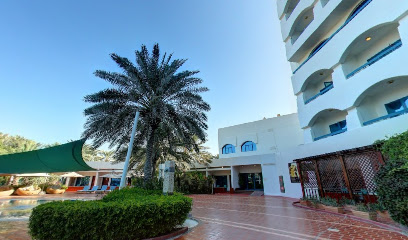
Lobby Lounge
Discover the serene ambiance of Lobby Lounge in Ajman, where relaxation meets sophistication in a vibrant setting.
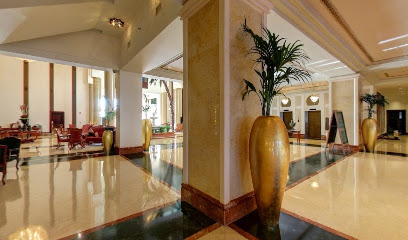
The Deck Pool and Bar
Experience luxury and relaxation at The Deck Pool and Bar in Ajman, offering exquisite dining and refreshing cocktails by the poolside.
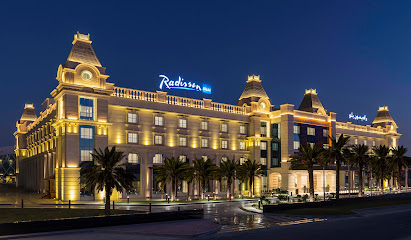
Drink
Discover the lively bar scene in Ajman Industrial 1, where refreshing drinks and a vibrant atmosphere await every visitor.
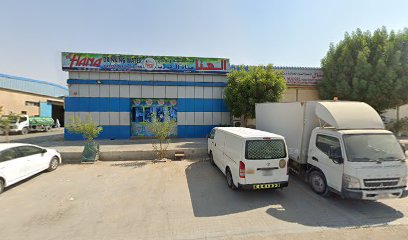
H20
Experience tranquility at H20 Lounge in Ajman, where relaxation meets exquisite refreshments in a luxurious setting.
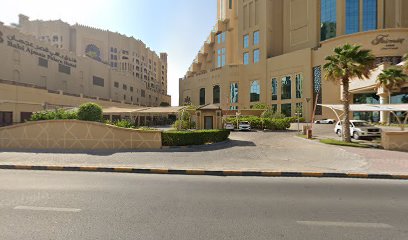
craft by two
Discover the vibrant atmosphere and exquisite cocktails at Craft by Two, a premier bar destination in Ajman's Free Zone.
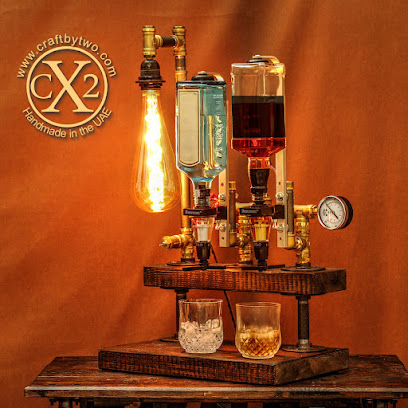
Fruity Drinks - Ajman
Discover the vibrant Fruity Drinks Bar in Ajman, offering a delightful selection of fruity cocktails and mocktails in a lively atmosphere.
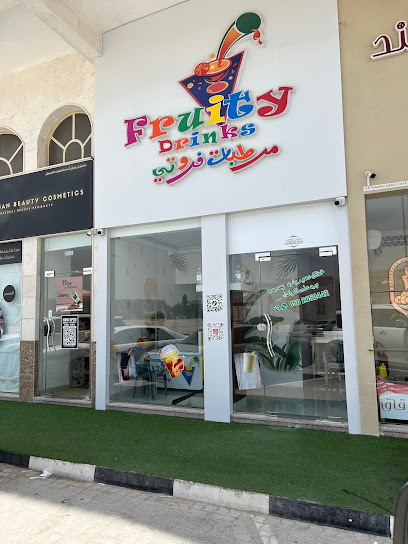
Local Phrases
-
- Helloمرحبا
[marhaban] - Goodbyeوداعا
[wadaean] - Yesنعم
[naam] - Noلا
[laa] - Please/You're welcomeمن فضلك
[min fadlik] - Thank youشكرا
[shukran] - Excuse me/Sorryعذرا
[aadhraan] - How are you?كيف حالك؟
[kaifa halik?] - Fine. And you?بخير. وأنت؟
[bikhayr. wa'ant?] - Do you speak English?هل تتحدث الإنجليزية؟
[hal tatahadath al'inglizia?] - I don't understandأنا لا أفهم
[ana la afham]
- Helloمرحبا
-
- I'd like to see the menu, pleaseأريد رؤية القائمة، من فضلك
[uriid ru'ya alqa'imah, min fadlik] - I don't eat meatأنا لا آكل اللحم
[ana la aakul allahm] - Cheers!في صحتك!
[fi sahtik!] - I would like to pay, pleaseأريد الدفع، من فضلك
[uriid aldaf', min fadlik]
- I'd like to see the menu, pleaseأريد رؤية القائمة، من فضلك
-
- Help!النجدة!
[alnajdah!] - Go away!اذهب بعيدا!
[adhhab baedan!] - Call the Police!اتصل بالشرطة!
[iatisil bialshurta!] - Call a doctor!اتصل بطبيب!
[iatisil bitabib!] - I'm lostلقد ضللت الطريق
[laqad dalalt altariq] - I'm illأنا مريض
[ana mareed]
- Help!النجدة!
-
- I'd like to buy...أود أن أشتري...
[awad an ashtari...] - I'm just lookingأنا فقط أتفرج
[ana faqat atfarij] - How much is it?كم سعره؟
[kam sa'ruh?] - That's too expensiveهذا غالي جدا
[hatha ghali jiddan] - Can you lower the price?هل يمكنك خفض السعر؟
[hal yumkinuk khafdh alsa'ru?]
- I'd like to buy...أود أن أشتري...
-
- What time is it?كم الساعة؟
[kam alssa'ah?] - It's one o'clockالساعة الواحدة
[alssa'ah alwahidah] - Half past (10)نصف العاشرة
[nisf al'ashirah] - Morningصباح
[sabah] - Afternoonبعد الظهر
[ba'd althuhr] - Eveningمساء
[masaa] - Yesterdayأمس
[ams] - Todayاليوم
[alyawm] - Tomorrowغدا
[ghadan] - 1واحد
[wahid] - 2اثنان
[ithnan] - 3ثلاثة
[thulatha] - 4أربعة
[arba'ah] - 5خمسة
[khamsah] - 6ستة
[sittah] - 7سبعة
[sab'ah] - 8ثمانية
[thamania] - 9تسعة
[tis'ah] - 10عشرة
[asharah]
- What time is it?كم الساعة؟
-
- Where's a/the...?أين...
[ayna...] - What's the address?ما هو العنوان؟
[ma huwa al'anaan?] - Can you show me (on the map)?هل يمكنك إظهار لي (على الخريطة)؟
[hal yumkinuk 'izhar li (ala alkharytah)?] - When's the next (bus)?متى الحافلة القادمة؟
[mata alhafilat alqadimah?] - A ticket (to ....)تذكرة (إلى...)
[tazkirah (ila...)]
- Where's a/the...?أين...
History of Ajman
-
Ajman’s history can be traced back to ancient times, with archaeological evidence suggesting human settlements in the area dating back to the Bronze Age. Excavations in the Al-Muwaihat area have unearthed tombs, pottery, and tools, indicating a thriving community that engaged in trade and agriculture.
-
In the late 18th century, the Al Nuaimi tribe, under the leadership of Sheikh Rashid bin Humaid Al Nuaimi, settled in Ajman. The Al Nuaimi tribe established control over the region, laying the foundation for the emirate’s political and social structure that continues to this day.
-
In 1820, Ajman, along with other Trucial States, signed a maritime truce with the British Empire, marking the beginning of the British Protectorate era. This agreement aimed to curb piracy along the Arabian coast and protect British shipping interests in the region. The truce was later solidified with the General Maritime Treaty of 1853.
-
During the late 19th and early 20th centuries, Ajman’s economy flourished due to the pearling industry. The warm, shallow waters of the Arabian Gulf were ideal for pearl diving, and many of Ajman’s inhabitants were involved in this lucrative trade. Pearls from Ajman were highly prized and traded across the Indian Ocean and beyond.
-
The discovery of oil in the 1960s significantly transformed Ajman and the other Trucial States. While Ajman itself did not have substantial oil reserves, it benefited from the wealth generated by oil in neighboring emirates. This period marked the beginning of rapid modernization and infrastructure development.
-
On December 2, 1971, Ajman joined the other Trucial States to form the United Arab Emirates. Sheikh Rashid bin Humaid Al Nuaimi, the then ruler of Ajman, played a crucial role in the unification process. This historic event laid the groundwork for Ajman’s integration into a rapidly developing nation.
-
Ajman is home to several cultural landmarks that highlight its rich heritage. The Ajman Museum, housed in an 18th-century fort, offers insights into the emirate’s history, including traditional lifestyle exhibits, archaeological findings, and artifacts from the pearling era. The museum is a testament to Ajman’s commitment to preserving its cultural legacy.
Ajman Essentials
-
Ajman is located approximately 40 kilometers northeast of Dubai. The nearest major airport is Dubai International Airport (DXB), which is well-connected to cities worldwide. From the airport, you can reach Ajman by taxi, which takes around 30-45 minutes depending on traffic. Alternatively, you can take a bus from the airport to Ajman, which is a more economical option but may take longer.
-
Ajman has a well-developed road network, and taxis are a popular mode of transportation. They are metered and relatively affordable. For public transport, buses are available, connecting Ajman to other emirates and within the city. Car rentals are also available and can be convenient for exploring at your own pace. Ride-hailing services like Uber and Careem operate in Ajman as well.
-
The official currency in Ajman is the UAE Dirham (AED). Credit and debit cards are widely accepted in hotels, restaurants, and shops. ATMs are plentiful, and foreign currency can be exchanged at banks and exchange bureaus. It's advisable to carry some cash for smaller shops and markets that may not accept cards.
-
Ajman is generally considered safe for tourists. However, standard precautions should be taken, such as being aware of your surroundings and not leaving personal belongings unattended. There are no specific high-crime areas targeting tourists, but it's always best to stay vigilant, especially in crowded places. Avoid walking alone at night in unfamiliar areas.
-
In case of an emergency, dial 999 for police assistance, 998 for an ambulance, and 997 for the fire department. Hospitals in Ajman offer high-quality medical care, and there are numerous pharmacies for minor health issues. It's recommended to have travel insurance that covers medical emergencies.
-
Fashion: Do dress modestly, especially in public places. Avoid wearing revealing clothing. Religion: Do respect local customs and traditions. When visiting mosques, wear modest clothing and women should cover their heads. Public Transport: Do be respectful and give up your seat to elderly passengers. Don't eat or drink on public transport. Greetings: Do greet people with a handshake. Using your right hand for handshakes and giving/receiving items is customary. Eating & Drinking: Do try local delicacies and accept food offerings graciously. Don't refuse hospitality as it is considered impolite.
-
To experience Ajman like a local, visit the Ajman Fish Market early in the morning to see the fresh catch of the day and interact with the fishermen. Explore the Ajman Museum to learn about the Emirate's history and culture. For a relaxing experience, spend time at Ajman Beach, which is less crowded than other emirates' beaches. Don't miss out on trying local cuisine at traditional Emirati restaurants.
Trending Landmark in Ajman
-
City Centre Ajman
-
Ajman Beach
-
Ajman Marina
-
UAE Pygmy Zoo
-
Hamidiya Park
-
Al Safia Park
-
Marsa Ajman
-
Ajman Museum
-
Al Zorah Marina 1
-
Flag Park - UAE Flag Pole Ajman
-
Sports Park
-
Al Jurf Family Park
-
Ajman University - Sheikh Zayed Center For Conferences & Exhibition
-
Al Zorah Natural Reserve - Ajman
-
Ajman Heritage District
Nearby Cities to Ajman
-
Things To Do in Sharjah
-
Things To Do in Umm Al Quwain
-
Things To Do in Dubai
-
Things To Do in Ras Al Khaimah
-
Things To Do in Dibba Al-Fujairah
-
Things To Do in Khor Fakkan
-
Things To Do in Fujairah
-
Things To Do in Khasab
-
Things To Do in Al Ain
-
Things To Do in Abu Dhabi
-
Things To Do in Sohar
-
Things To Do in Ibri
-
Things To Do in Rustaq
-
Things To Do in Bahla
-
Things To Do in Nizwa









